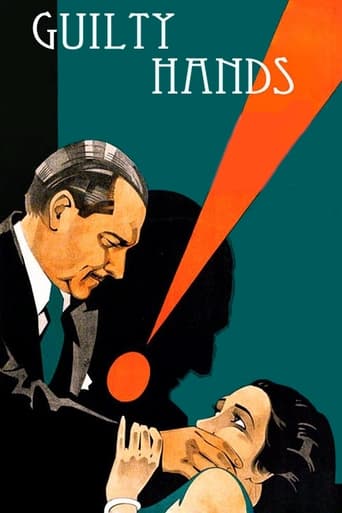bruno-32
Caught this last night on a boring night of TV, and was mildly amused by the concept. Some reviewers here say that Barrymore's performance was hammy, and I have to agree a bit, that it was, but being a primarily stage actor turning to films, is understandable. The real ham acting in my opinion was Miss Kay Francis. Her role was interesting, but her reactions to Barrymore's insinuations were not believable. I thought it an amateurish performance, albeit, she had masterly improved in latter years. The ending was a shocker in a way, but again so amateurishly performed..but hey, this was 1933. Also, the daughters character was out of whack. Most of the movie she was this innocent, fragile child seeking love, and then becomes this wanton creature.
calvinnme
Lionel Barrymore did play some villains in his time, but this is quite an unusual role for him. He's not an altogether dark character as he was in Rasputin and the Empress or "The Show". Here he's all shades of gray. The same for Kay Francis as the mistress of a truly horrible creature whom she loves and is willing to continue seeing after his marriage. In the opening scene, totally dark but for the silhouettes of two men to whom Richard Grant (Barrymore) is speaking, he gives his theory of how the perfect murder is possible and how murder might possibly be justified, and since he's sent four dozen to the gallows as prosecutor and spared eight dozen more as a defense attorney, he's seen murder cases from every angle. This is all academic until Grant reaches his destination - the estate of his client Gordon Rich (Alan Mowbrey). Rich tells Grant he is going to marry Grant's daughter Barbara, his only child, and the only thing he has to remember his long lost wife by. Having been Rich's attorney for some time Grant knows Rich will only bring his daughter unhappiness since he's quite the remorseless wolf, so Grant tells Rich he'll murder him as part of the perfect crime if he goes through with this marriage. Rich isn't intimidated, and neither can Grant convince his daughter of Rich's bad character. The marriage is to occur the next day.Later that night a woman's scream is heard in Rich's study, everyone races into the room, and there is Gordon Rich laying dead from a bullet wound to the chest, apparently self-inflicted since his gun is still in his hand. Before his death Rich has instructed his servants to watch Grant all night long and inform him if he leaves his room. They witness Grant's silhouette as he paces the floor in his room and nothing else.Now, of course, the fact that Grant did it is no secret to the viewer and furthermore Grant conveniently takes charge of the investigation until the police arrive. Only Marjorie (Kay Francis), Rich's long-time mistress objects to Grant's self-serving theory that this is suicide and she claims it is murder. However, if it is murder, Marjorie is the most obvious suspect since she would not inherit anything if Rich rewrote his will as he was planning, due to his impending marriage. So she had both jealousy and money as motives. Nobody else knew about Grant's threat on Rich's life except Rich, and he is in no position to tell anyone. So it's tricky business for Marjorie to insist on a theory that might cost her not only Rich's fortune but her freedom and her life. So the rest of the film is a cat and mouse game between Marjorie - who suspects Grant from the start - and Grant, and for most of the film it is Marjorie as the mouse - the keyword being most. Did I forget to tell you that before Rich died Barbara decided not to marry him due to a goodnight kiss that almost turned into a rape, making the murder the height of irony? This film has lots of atmosphere and a very well-paced screenplay, but if there is any reason to watch it is Barrymore as Grant whose real downfall is having been around murder cases so long that it has become like sport to him, causing him to lose the perspective of justice needing to be served. This film has an ending that is really nifty even if it is far-fetched. Highly recommended.
gridoon2018
"Guilty Hands" was made in 1931, but it looks ahead of its time - both technically (the opening sequence is particularly impressive) and thematically (it tells the story of a "justifiable murder" - and the murderer is the main character!). There are strong doses of black humor in the dialogue ("Gordon Rich was entirely responsible for his own death"), the "alibi" is a very clever one, and the ending caps it all off with a nicely ironic touch. The film also offers two absolutely gorgeous (though largely forgotten today, sadly) women - Kay Francis and Madge Evans. It's easy to see why Francis was so popular especially in the early 1930s; apart from being beautiful she is also very expressive. Madge Evans is charming, while Lionel Barrymore plays the main character with an appropriate and enjoyable hamminess. **1/2 out of 4.
Ron Oliver
Can Lionel Barrymore commit the perfect crime, for the sake of his daughter's honor, and get by with it? That's the question posed in this fine film which is NOT a "whodunit". Almost forgotten by nearly 7 decades of bigger, splashier movies, fans of crime films will not want to miss this little gem. Tightly plotted and suspenseful, GUILTY HANDS (yes, the title is important) rewards the thoughtful viewer.Barrymore is great, as always. Kay Francis is a shady lady with too much past. Alan Mowbray - in a welcome departure from his comic butler roles - is suave and evil. Madge Evans, Polly Moran & Sir C. Aubrey Smith round out the supporting cast.And what a great ending - unexpected and appropriate.


